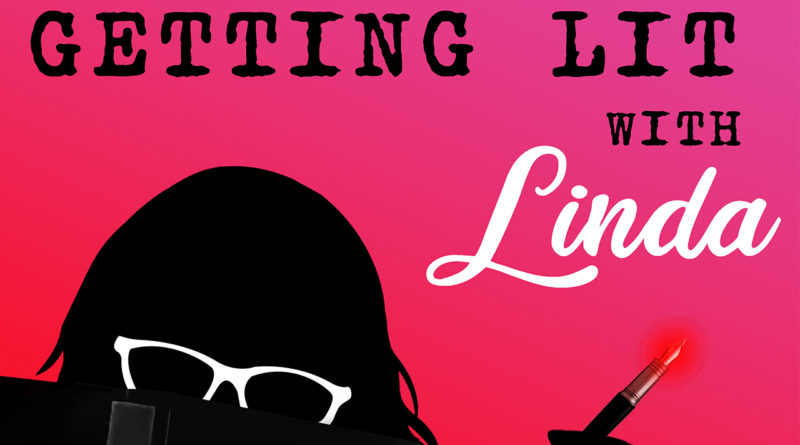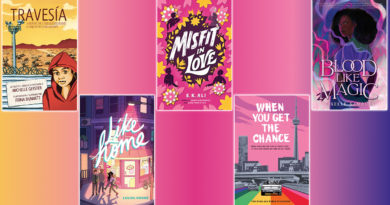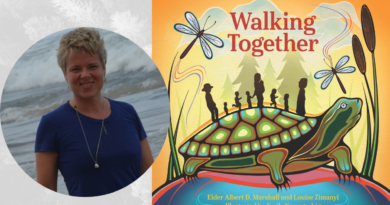Delightful Getting Lit with Linda podcast connects Canadian literature to the here and now

For avid readers, books are like comfort food for the soul. No satisfaction can top the refreshment and respite provided by a good story. That said, choosing what book to read next can be confounding. Enter Dr Linda Morra’s podcast Getting Lit with Linda – The Canadian Literature Podcast – an accessible and engaging experience which is also an amazing resource for discovering Canadian titles that you might not know about.
As an award-winning professor of Canadian and Indigenous Literatures at Bishop’s University in Sherbrooke, Québec, Morra boasts a hefty list of academic qualifications. She specializes in archival and women’s writing in Canada. Her most recent edited book, Moving Archives (Wilfrid Laurier University Press 2020), won the Gabrielle Roy Prize in English. She was awarded the 2016-2017 Craig Dobbin Chair of Canadian Studies at University College Dublin (UCD), Ireland, for which she developed the Canada 150 conference, “Untold Stories of the Past 150 Years”. She served for several years as President of the Quebec Writers’ Federation, organized the Literary Umbrella of Quebec (LUQ), and established and runs the Student Writing Week/End in the Eastern Townships (SWEET).
All of these experiences, coupled with Morra’s deep knowledge of Indigenous and Canadian authors, yield a podcast which is a winning recipe of keen observations, personal experiences and decades of scholarship. Each episode is under 30 minutes in length and features a Takeaway segment, in which Morra recommends books related to the themes of the main title that she is presenting. Just a few of the titles that Morra has discussed on Getting Lit with Linda include Madeleine Thien’s Do Not Say We Have Nothing, Kaie Kellough’s Magnetic Equator, Thomas King’s short story collection, One Good Story, That One and Jane Rule’s Taking My Life. Some episodes feature interviews, including one with a former student who is a graphic-novel aficionado, and one with her co-producer who is award-winning podcaster, producer and actor Marco Timpano, author of 25 Things I Wish I Knew Before I Started My Podcast.
What most distinguishes Getting Lit with Linda is Morra’s ability to connect the themes of each book discussed to real life – and to do so in ways that are unexpected, topical, relevant and relatable. Morra scripts each episode herself, and Getting Lit with Linda showcases her skill at writing for the spoken voice and delivering those words in an animated yet soothing style. Listeners are liable to find themselves hooked: with swelling reading lists and minds newly “lit” to a spectrum of Canadian literary talent that continues to grow. Morra spoke with us about the podcast’s genesis, its unique niche in the world of literary podcasts, and the importance of expanding our awareness of Canadian writers far beyond the two Margarets (Laurence and Atwood).
Based on the biography on your website, you have a fulsome career as an academic and writer. What prompted you to begin a podcast?
I was trying to locate a way to reach my students through the pandemic, and Marco Timpano urged me to try using podcasts and taught me everything he knew (well, almost – years of experience can’t be condensed into a few days). I discovered so much in the process– that I loved using this medium, that I could reach a much larger audience than my students, that I was addressing why I really thought literature could speak to us in a more personal way. I realized that I just wanted to introduce people to literature and show them how it could apply to and resonate with their daily lives. It’s incredibly different from my scholarly work, which is usually theoretical and for a much more limited audience. The podcast is personal and conversational. So you don’t even have to know the book I’m talking about or even ever read it: I offer a concluding insight or understanding about daily living that comes from the book I’m discussing, and aspire to make the reader fall in love with the book.
Still, at first I was really anxious about doing this – I mean, people outside of my classrooms would be listening to this! My co-producer had to coach me and encourage me to develop the sense of confidence I needed. The moment I leaned into the microphone to say, “This is Linda Morra, the writer and host of Getting Lit with Linda ….” – it felt incredible and fun and important. I suddenly felt in my element, because my sense of love and passion for the literature I was discussing spilled over, and that’s want mattered.
2. When you were planning your podcast, what did you hope it might contribute to the landscape of literary podcasts? How has this borne out so far?
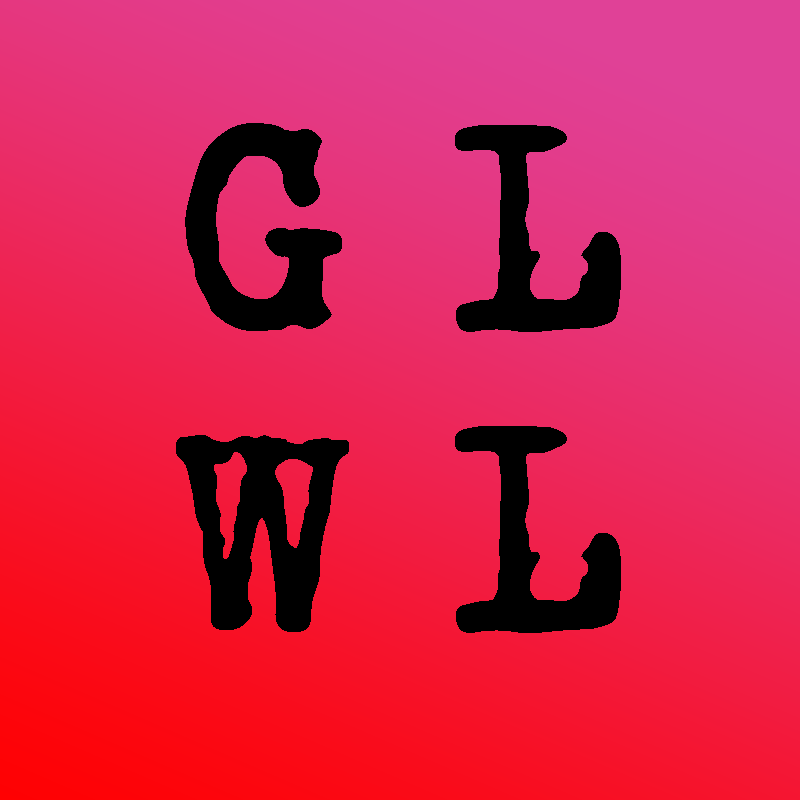
There is no equivalent. I remember having conversations with people—sometimes not from the country, but sometimes Canadians themselves—who would say things like, “Who else aside from Atwood is a Canadian writer?” and also, “Who would you recommend?” These ARE my recommendations! But I also wanted to talk to people about the wealth of good writing and good writers we have here, and I don’t see a podcast that does that.
There are podcasts out there that address elements of literature in Canada, but there isn’t one that has this kind of focus and range, that comes at this body of work with my equivalent expertise. My episodes are real explorations on the work I happen to be discussing that day – I go inside the books to talk about how they might connect with us and our daily lives. I am hopeful that it continues to provide this expansive sense of the field—to show listeners how the books I’m discussing might be relevant to their daily life, while I entertain and inform them.
3. Speak to us about your experience as a podcaster so far. Is it what you thought it would be? Is it more or less challenging than you anticipated?
To undertake the kind of episodes I do takes real work – each episode is actually researched, scripted, and edited carefully. It’s not off-the-cuff, although I make it sound like it is (unless I’m interviewing someone, and then there’s no road-map). There were so many things I had to learn too along the way. Even designing the logo was new! My co-producer I spent several hours trying to come up with the image—which was derived from an actual photo of me holding a book—and heatedly discussed the background colour. At last, I told him “I just love pink and red!, and that’s what it needs to be!,” so we changed it to and went with that. And that is the first lesson from podcasting: sometimes, you just have to go with your first instincts.
I had to figure out how to develop a recording space, which is, in fact, in my closet. When I did it the first time, on my kitchen table, the sound was just terrible! I bought moving blankets, and padded one side of my closet; so, in one live video interview for the podcast, someone actually said to me, “Is that a red dress over your shoulder?” Yes—yes, it was. (I told you I like red!)
When I interviewed another guest outside, we had to work around wind, birds, and a truck backing up. So, I have had to learn about editing each episode, and there the learning curve has been steep.
Another challenge was related to speaking about the authors. I’m always anxious they won’t be happy with what I’ve done or how I’ve read their book. Perhaps some of them aren’t happy and I just won’t ever know. But I was never more delighted than when Madeleine Thien wrote about the episode, “My Body is a Record,” to say that she found the episode moving, or when Heather O’Neill and Kaie Kellough retweeted my posts about their episodes. I couldn’t have been happier at that moment.
One other challenge—my co-producer keeps having to remind me to turn away from the mic when I laugh! Who knew my podcast laugh was so boisterous!
4. What has been the most memorable moment you’ve had or most memorable response you’ve received to Getting Lit with Linda so far? Has anything or anyone surprised you?
I was delighted to have Pedlar Press reach out to me after they heard the Takeway Portion of the episode titled “Literature Heals and Connects Us.” In that section, I focused on one of their books, titled Found, by author Souvankham Thamavongsa (now famous for How to Pronounce Knife). I was commending the quality of their books – they really are such beauties, elegantly fashioned – and I unexpectedly received a box of books shortly after the episode aired, as their way of thanking me. You can be sure I’ll be reviewing one of their authors again soon!
5. What Canadian author has influenced you? What would a podcast with this author as your guest be like?
I’m not sure I would say “influenced,” but rather impressed. I’d pick two – Madeleine Thien and Anakana Scofield. The former has this ethereal, spiritual, resonant quality when she speaks, and I find myself riveted, whereas the latter has this rich, quirky, insightful, ironic way of speaking. I’d love to interview both of them for the podcast soon—with Scofield, I suspect it would be funny, engaging, interesting. She has this no-holds-barred approach to conversations that I just love (especially since I’m quite introverted and shy). Of course, I think it’s safe to say that any literary podcaster would pretty much sell their next-of-kin to also interview someone like Margaret Atwood or Alice Munro
6. The final word is yours. What question should I have asked you that I didn’t?
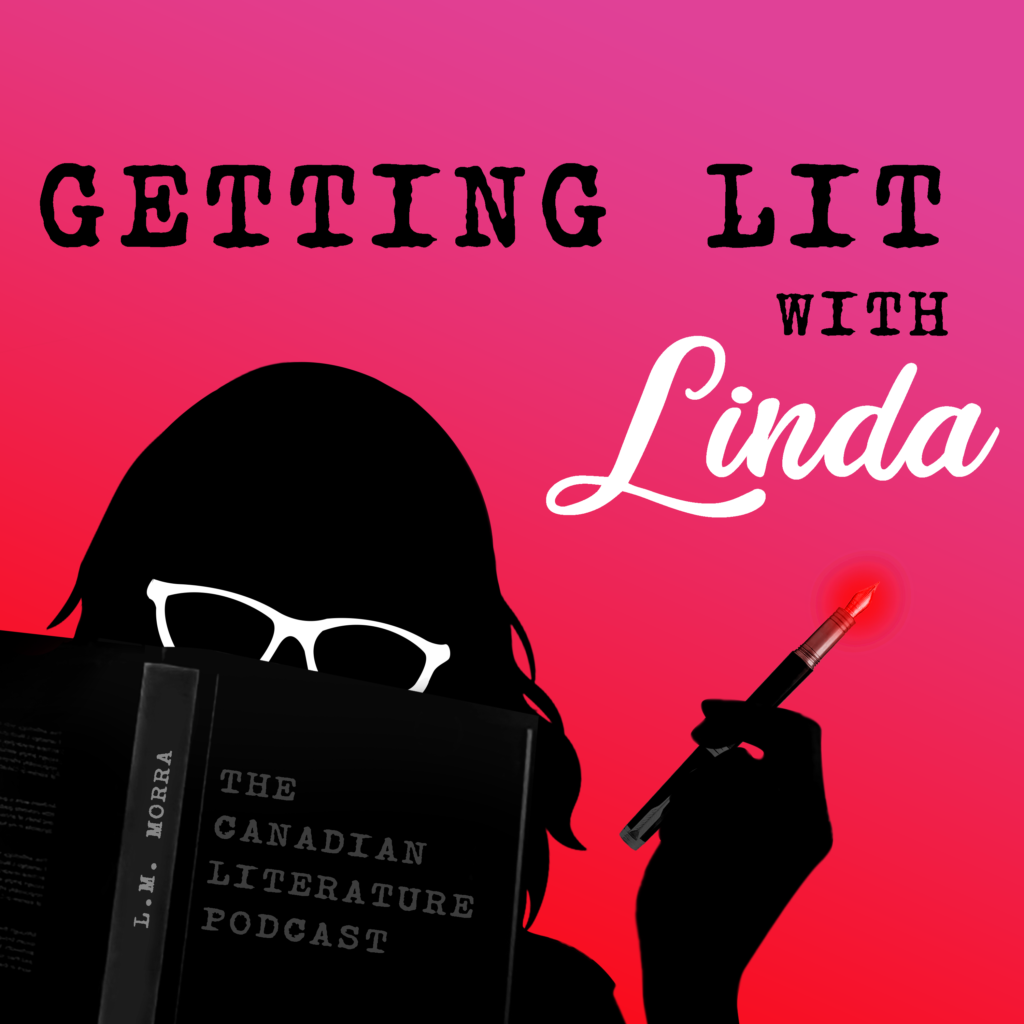
The podcast also came at a time when my parents passed away, and I love weaving in elements of their lives and other stories that bear on the book I’m discussing into my episodes, which I think my audience relates to.
Here’s a question: “What makes Getting Lit with Linda” the podcast you would want to hear? The episodes are usually never more than 30 minutes—so they offer a contained, soothing, insightful commentary on a book that also applies to your daily life, while informing the listener from a Canadian perspective and about the body of the work available here.
© Arpita Ghosal, SesayArts Magazine, 2021Sherbrooke, Quebec
About The Author
Arpita Ghosal
Arpita Ghosal is a Toronto-based arts writer. She founded Sesaya in 2004 and SesayArts Magazine in 2012.
Visit About Us > Meet the Team to read Arpita’s full bio …

